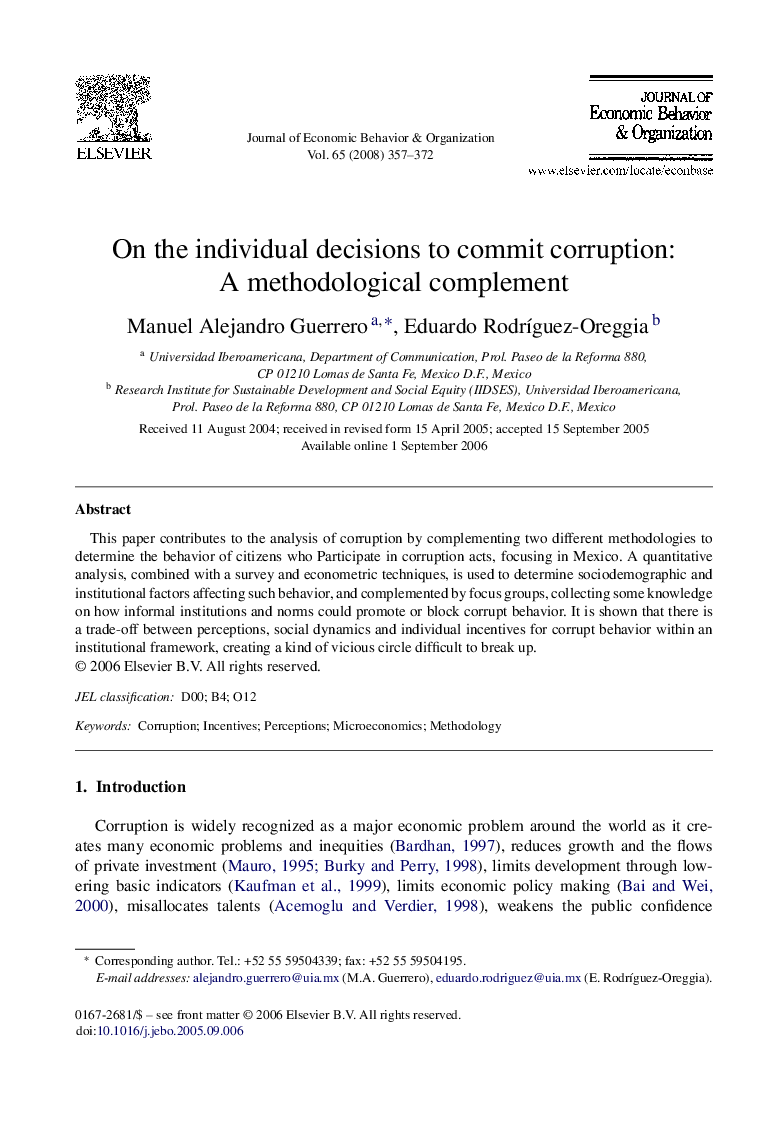| Article ID | Journal | Published Year | Pages | File Type |
|---|---|---|---|---|
| 884573 | Journal of Economic Behavior & Organization | 2008 | 16 Pages |
Abstract
This paper contributes to the analysis of corruption by complementing two different methodologies to determine the behavior of citizens who Participate in corruption acts, focusing in Mexico. A quantitative analysis, combined with a survey and econometric techniques, is used to determine sociodemographic and institutional factors affecting such behavior, and complemented by focus groups, collecting some knowledge on how informal institutions and norms could promote or block corrupt behavior. It is shown that there is a trade-off between perceptions, social dynamics and individual incentives for corrupt behavior within an institutional framework, creating a kind of vicious circle difficult to break up.
Related Topics
Social Sciences and Humanities
Economics, Econometrics and Finance
Economics and Econometrics
Authors
Manuel Alejandro Guerrero, Eduardo Rodríguez-Oreggia,
